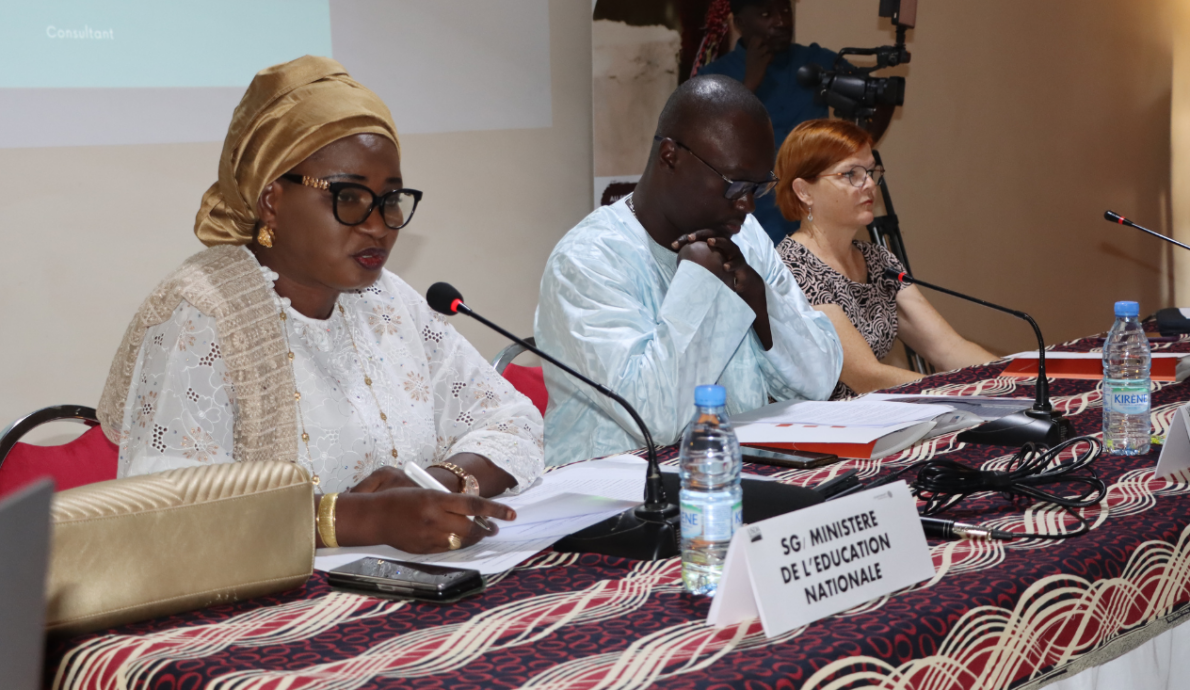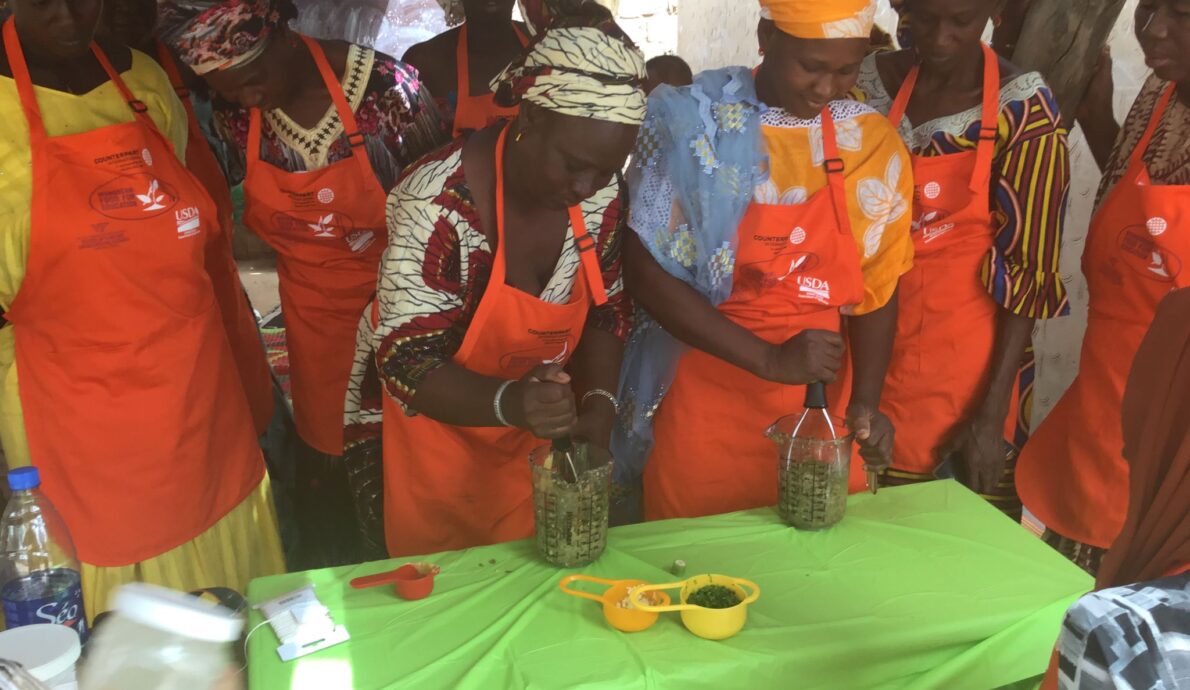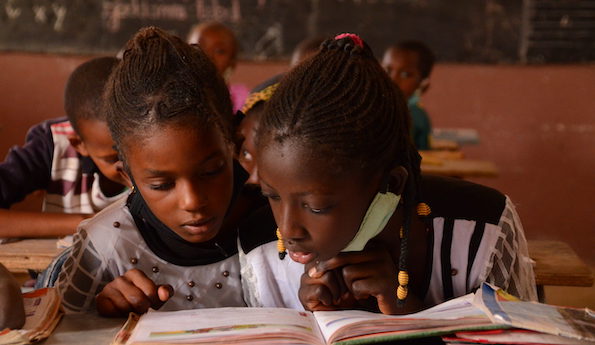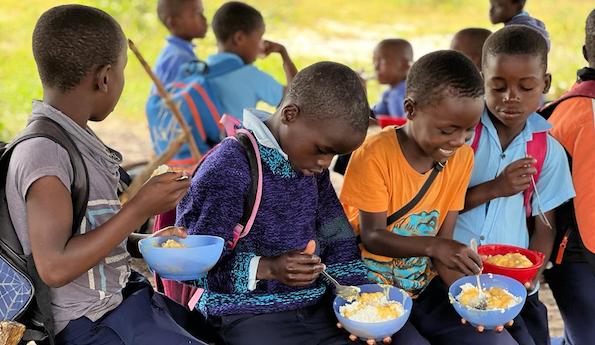Despite being one of the region’s more stable countries, Senegal remains a low-income, food-deficit nation with malnutrition rates as high as 26 percent in children under the age of five. Since 2008, Counterpart has worked to create a food secure environment for Senegalese children. Our current USDA-funded McGovern-Dole Food for Education program in Senegal is called Sukaabe Janngo, or Children of Tomorrow. Here is the story of one participant.
Bineta Kane lives and works in the village of Kanel in Senegal, where she oversees a group of women dedicated to supporting the wellbeing of their community by planning community events and by growing plants and tending livestock for food. Kane and her group partner with Counterpart to increase and improve their food production, which is turn ensures a more plentiful and varied diet for the children in their community. Kane has worked with us since August 2021, and recently participated in a training on mung bean production and cooking techniques conducted as part of a collaboration with Virginia Tech’s College of Agriculture and Life Sciences. Mung beans—long a healthy and protein-packed food staple in Asia—were initially introduced in Senegal by the USAID-funded Education and Research in Agriculture Project, implemented by Virginia Tech. USDA, Counterpart, and others soon recognized the potential to use this new crop to support school feeding programs throughout the country.
In 2023, Kane and her community produced a record amount of mung beans: 77 pounds of mung beans in a 1500 square foot garden, equivalent to 2500 kg/hectare or 2.5 tons/acre. This feat was particularly impressive given the small size of Kanel’s growing land. This success was due largely to the type of seed they planted—OK2000, a seed produced in Oklahoma, which has the potential to produce up to 3 tons/hectare under the most favorable environmental conditions (ideal soil, water, fertilizer, plant density, etc.). Importantly, Kane and the women who work with her produce these crops to feed their families and have committed to donating additional food to the local school canteen. Already this growing season, they have exceeded their expected contribution to the school by nearly 100%.
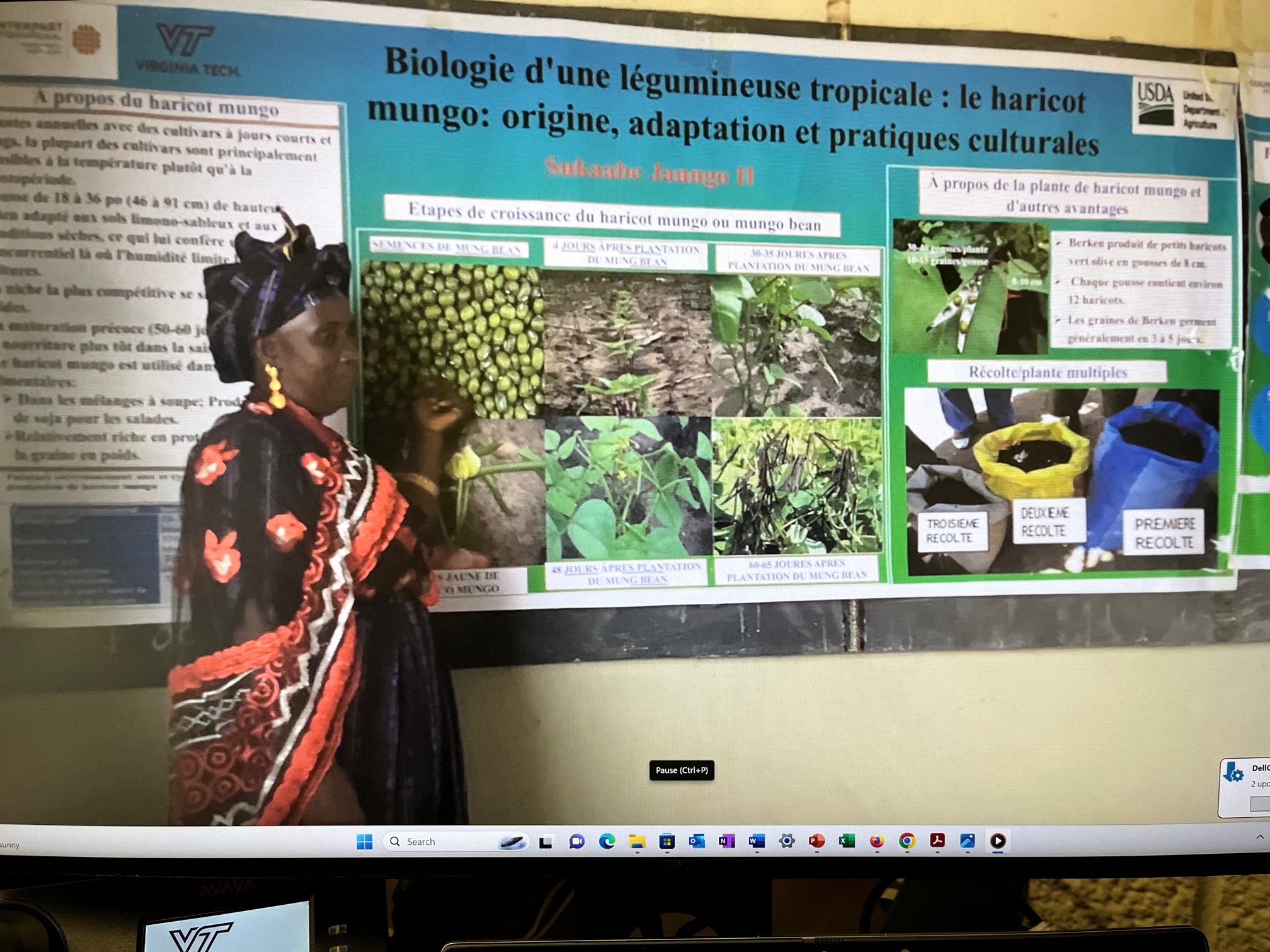
Bineta Kane sharing her experience growing mung bean with the community.
Growing more with less
Kane’s mung bean garden’s success is a perfect example of agricultural intensification and the sustainability priorities emphasized by Counterpart’s school feeding program, demonstrating how to grow more food on less land. Kane attributes the success to:
- Using agronomic best practices and following the production guide provided by Counterpart.
- Locating the garden right behind Kane’s house for round the clock attention to the crops.
- Following the ideal planting density and row spacing for increased yield.
- Using organic fertilizer.
- Harvesting the mung bean when the seed pods turned black.
- Regular watering to ensure that drought did not a limit the yield.
Adherence to these best practices ensured not only a robust harvest, but also allowed Kane and her community to harvest mung beans three times from the same plants during this past growing season. Kane credits the capacity building, training, and support provided by Counterpart for her success, and is optimistic that her results can be replicated by nearby communities, ensuring a healthy and robust diet for children in the local schools.



